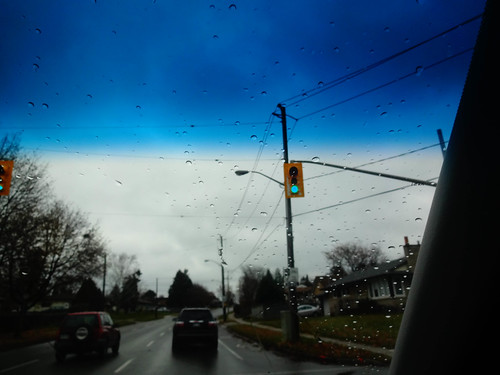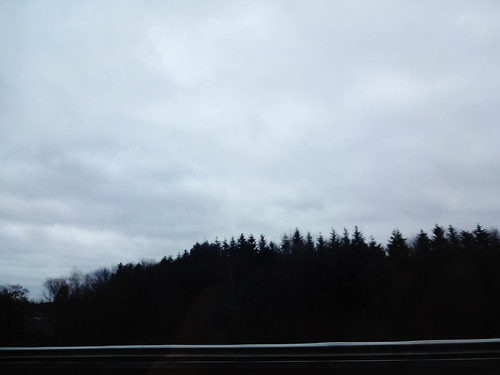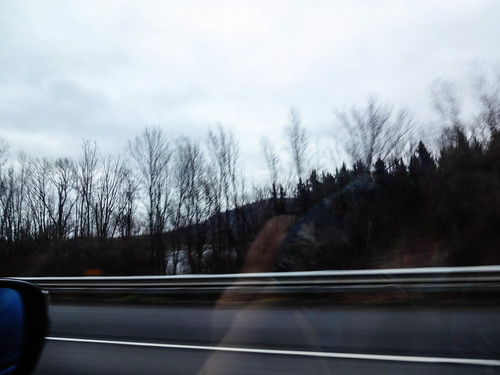
Yesterday, while grabbing a book to bring along to a soccer field I mentally composed a perfect blog post. Maybe I'll blog on my phone beside the soccer field, I thought. But the post vanished, and instead, beside the soccer field, I chatted with other parents (whom I see far more often than I do my closest friends) and watched, mesmerized, our daughters pass the ball with great skill and determination. The book stayed unopened in my hand.
The perfect imaginary blog post is not unlike the perfect imaginary book, I suspect, a subject Ann Patchett addresses in her very funny and quite serious essay on writing, "The Getaway Car," in her new book of essays, THIS IS THE STORY OF A HAPPY MARRIAGE.
Logic dictates that writing should be a natural act, a function of a well-operating human body, along the lines of speaking and walking and breathing. We should be able to tap into the constant narrative flow our minds provide, the roaring river of words filling up our heads, and direct it into a neat stream of organized thought so that other people can read it ... But it's right about there, right about when we sit down to write that story, that things fall apart.
Two things in that passage. One, the obvious point that writing is not a natural act; and two, that we narrate our lives, and it's the second I've been thinking about most.
Yesterday, I imagined writing from inside the new car. I would tell you about the sudden shock of snow, the windshield wipers working, the warm hum from the vents. I might add in a snippet of caught conversation between me and a child. I might even admit to a burst of irritation at the stupidity of another driver. There would be the hush of tires turning. The flash of lights and the smear of their colour across the wet windshield in the early dark.

It's fitting that I put my book advance toward a new vehicle, as the new vehicle has become my second home in a way that seems almost outrageous when I add up the hours. I've undone every green dream I ever had, whilst supporting my children in their extra-curricular interests. On Monday, between 5:05pm and 9:15pm, I spent a total of two and a half hours in our new vehicle, including an hour and a half venture, around town, that had me climbing out at home with a numb posterior. During that particular round, "Aggie" and I visited a far-flung indoor soccer field, a gymnastics club on the opposite side of town, and a pool, before returning home. And it snowed the whole time. The best part was when the eldest voluntarily joined me for the final trip of the evening. "What should we talk about?" he asked cheerily, and, as we'd already covered the intricacies of the PS4 gaming system he's hoping for, we moved on to music, and soccer, and the mall, and fantasizing about food we'd like to eat.
That's the one good thing about all this time in the car. It's time with the kids, and we talk, a lot.
But later, home again, kids in bed, I said to Kevin, "When I'm all done driving these kids around, I'm going to be old. That's what's going to happen. I'll be done driving them, and I'll be old."

photos in this post taken by child in passenger seat
Meanwhile -- and this may save me -- I'll be "narrativizing" my life.
Yesterday afternoon, I listened to a Writers and Company podcast: Aleksandar Hemon interviewed by Eleanor Wachtel. Hemon uses his own experiences in his fiction, without qualms or apology: "The way I write fiction
most often is that I imagine a different outcome of a situation." Hemon observes something unfolding and ending, a snippet, a glimpse, or a straightforward hike from A to B, and he wonders: what if X had happened instead? A character might appear to be based on himself, yet he seems to harbour no worries about being mistaken for a character. In short, the line between fiction and non-fiction does not seem to trouble him. He's writing stories, not history, whether they are "true stories" (non-fiction) or fiction. "We go toward the things we do not
know in literature. To go in the opposite direction is to write only about the
easy things." (I'm paraphrasing; I took notes while listening, as non-fiction versus fiction has become a bit of an obsession while I try to teach it to my students, and while I reflect on what writing/publishing The Juliet Stories has both given me and cost me.)
I feel myself urgently wanting to use what I've got at hand, and to spin it into something different; "to arrive at something," as Hemon puts it. There is life. There is the rendering of life into story. I'm missing quite a few pieces in my life, right now. Apparently I can't squeeze everything in to satisfaction, not while driving for hours a day. What gets lost? Wouldn't I love to host more suppers? Yes. My social life is pinched. I'm tired far too early in the evening. The laundry overwhelms. But there's something about writing that can set life into balance, for me. I arrive at something there that I can't here.Labels: blogging, chores, driving, gymnastics, interviews, kids, soccer, swimming, writing


